第122章 CHAPTER XVII(7)
There was a pathos in seeing it fade like a thing sinking down till it became one with the immeasurable sands, and at that moment she said to herself, "When shall I see Beni-Mora again--and how?" She looked at Androvsky, met his eyes, and thought: "When I see it again how different I shall be! How I shall be changed!" And in the sunset she seemed to be saying a mute good-bye to one who was fading with Beni-Mora.
As soon as they had got off the camel and were standing in the group of staring Arabs, Batouch begged them to come to their tents, where tea would be ready. He led them round the angle of the wall towards the west, and there, pitched in the full radiance of the sunset, with a wide space of hard earth gleaming with gypse around it, was a white tent. Before it, in the open air, was stretched a handsome Arab carpet, and on this carpet were set a folding table and two folding chairs. The table held a japanned tray with tea-cups, a milk jug and plates of biscuits and by it, in an attitude that looked deliberately picturesque stood Ouardi, the youth selected by Batouch to fill the office of butler in the desert.
Ouardi smiled a broad welcome as they approached, and having made sure that his pose had been admired, retired to the cook's abode to fetch the teapot, while Batouch invited Domini and Androvsky to inspect the tent prepared for them. Domini assented with a dropped-out word. She still felt in a dream. But Androvsky, after casting towards the tent door a glance that was full of a sort of fierce shyness, moved away a few steps, and stood at the edge of the hill looking down upon the incoming caravan, whose music was now plainly audible in the stillness of the waste.
Domini went into the tent that was to be their home for many weeks, alone. And she was glad just then that she was alone. For she too, like Androvsky, felt a sort of exquisite trouble moving, like a wave, in her heart. On some pretext, but only after an expression of admiration, she got rid of Batouch. Then she stood and looked round.
From the big tent opened a smaller one, which was to serve Androvsky as a dressing-room and both of them as a baggage room. She did not go into that, but saw, with one glance of soft inquiry, the two small, low beds, the strips of gay carpet, the dressing-table, the stand and the two cane chairs which furnished the sleeping-tent. Then she looked back to the aperture. In the distance, standing alone at the edge of the hill, she saw Androvsky, bathed in the sunset, looking out over the hidden desert from which rose the wild sound of African music, steadily growing louder. It seemed to her as if he must be gazing at the plains of heaven, so magically brilliant and tender, so pellucidly clear and delicate was the atmosphere and the colour of the sky. She saw no other form, only his, in this poem of light, in this wide world of the sinking sun. And the music seemed to be about his feet, to rise from the sand and throb in its breast.
At that moment the figure of Liberty, which she had seen in the shadows of the dancing-house, came in at the tent door and laid, for the first time, her lips on Domini's. That kiss was surely the consecration of the life of the sands. But to-day there had been another consecration. Domini had a sudden impulse to link the two consecrations together.
She drew from her breast the wooden crucifix Androvsky had thrown into the stream at Sidi-Zerzour, and, softly going to one of the beds, she pinned the crucifix above it on the canvas of the tent. Then she turned and went out into the glory of the sunset to meet the fierce music that was rising from the desert.